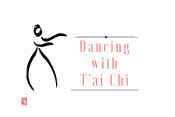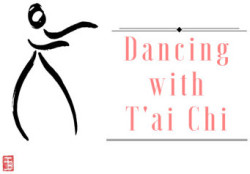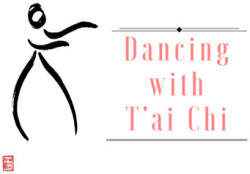
The I Ching (‘I’ signifying change or clarity, and ‘Ching’ a book written by a sage) or The Book of Change, the principle text of Taoism,[1] may be the oldest book on earth which “holds the time-tested value of responding to the needs of mankind”.[2] Through a collection of commentaries on 64 hexagrams that interprets the laws of Nature as the laws of humanity,[3] the I Ching is used as a path to enlightenment rather than a moral or religious treatise, just as the practice of t’ai chi seeks a transformation of perceptions and attitudes. The term ‘t’ai chi’, literally meaning ‘the grand ultimate’ and figuratively ‘the cosmos’, together with its philosophical context, are first mentioned in the I Ching. As its name tells us, the Book of Change embodies the concept of continuous change, moving from one extreme to the other, “embracing all of the transformations in Heaven and Earth without error”.[4] T’ai chi reflects the natural rhythms of the Universe which follow patterns and cycles of change, of contracting and expanding, of emptiness and fullness of declining and newness. It is healthy for us to reflect on how we view ‘change’: is it something that we resist and try and take control ourselves? Is it something we think about at all? We change daily, experiencing varying energy levels, aches and pains, stress and anxiety, and sometimes feeling overwhelmed with too much to do. Both the I Ching and t’ai chi make living in harmony with nature their foundation: the I Ching teaches us to “look for the most appropriate point in any particular behaviour or event”, whilst practising t’ai chi helps us to bring our bodies and mind into a state of calmness and balance.[5]
[1] This small collection of aphorisms and passages relating to personal conduct and government is traditionally said to be the work of Lao Tzu, a contemporary of the sage Confucius who died in 479 B.C. However, modern scholarship has established that the Tao Te Ching is an anthology of writings by different authors. It is made of two parts: the yijing (the main Text), considered to have been written in 1150 B.C. and the yizhuan (the Commentary), which was finished around 400 B.C.
[2] Hua-Ching Ni, The Book of Changes and the Unchanging Truth, [Los Angeles: Tao of Wellness, eighth printing, 2007], p. ii
[3] By King Wen (1766-1121 BC), Confucius (551-479 BC) and Lao Tzu (571 BC).
[4] I Ching, “Great Commentary”, Book 1, Chapter 4 cited in Master Cheng’s Thirteen Chapters on T’ai chi Ch’uan by Cheng Man-ch’ing, translated by Douglas Wile, [New York: Sweet Ch’i Press, 1982], p. 10
[5] Hua-Ching Ni, The Book of Changes and the Unchanging Truth, [Los Angeles: Tao of Wellness, eighth printing, 2007], p. ii


